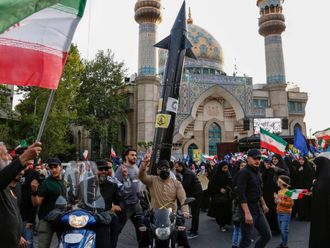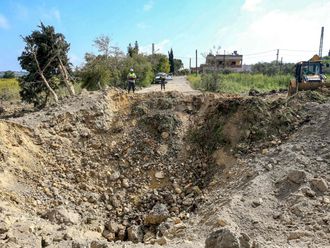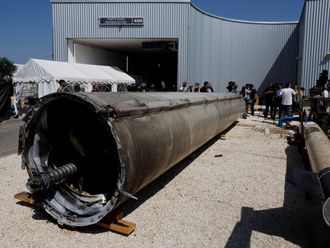Occupied Jerusalem: The US ambassador to Israel, David Friedman, has made a second dramatic intervention in US Middle East policy, suggesting that only 2 per cent of the West Bank is occupied by Israel and that the international community always intended for Israel to keep some of the land it seized in the 1967 War. “I think the settlements [colonies] are part of Israel,” Friedman said, comments that seem at odds with decades of US foreign policy.
“I think that was always the expectation when resolution 242 was adopted in 1967,” he said, referring to the UN Security Council resolution made at the end of the 1967 War, when Israeli forces occupied the West Bank and Gaza Strip.
Friedman, a former personal lawyer of Donald Trump who had no experience in diplomacy before his appointment, was regarded as being a strong supporter of Jewish colony before he was named as ambassador.
Condemning Friedman’s remarks, which he said showed a misunderstanding of resolution 242, a Palestinian official told the Guardian: “Israel occupies 100 per cent of the West Bank. If I was a US citizen I would be extremely concerned that my ambassador in Israel is using his position to try to emphasise the importance of colonies to Israel.”
It is the second time in as many months that Friedman has courted controversy with his views on Israel’s occupation and Jewish colonies, after he referred to “the alleged occupation” in an interview with the Jerusalem Post.
There is mounting concern among Palestinian officials over what they see as a bias towards Israel in the Trump administration’s much vaunted hopes for a peace deal between Israelis and Palestinians, not least over the Trump administration’s continuing refusal to commit itself to a two-state solution.
For his own part, before taking up his current post Friedman voiced opposition to a two-state solution to the Israel-Palestine crisis.
A highly controversial pick for the role of ambassador, Friedman had also called Barack Obama an anti-Semite and suggested US Jews who opposed the Israeli occupation of the West Bank were worse than kapos, Nazi-era prisoners who served as concentration camp guards.
“The idea was that Israel would be entitled to secure borders,” Friedman told Israeli Walla. “The existing borders, the 1967 borders, were viewed by everybody as not secure, so Israel would retain a meaningful portion of the West Bank, and it would return that which it didn’t need for peace and security.
“So there was always supposed to be some notion of expansion into the West Bank, but not necessarily expansion into the entire West Bank.
“And I think that’s exactly what Israel has done. I mean, they’re only occupying 2 per cent of the West Bank. There is important nationalistic, historical [and] religious significance to those colonies, and I think the settlers[colonists] view themselves as Israelis and Israel views the settlers as Israelis.”
Resolution 242 demanded the “withdrawal of Israel armed forces from territories occupied in the recent conflict” while “emphasising the inadmissibility of the acquisition of territory by war”.












